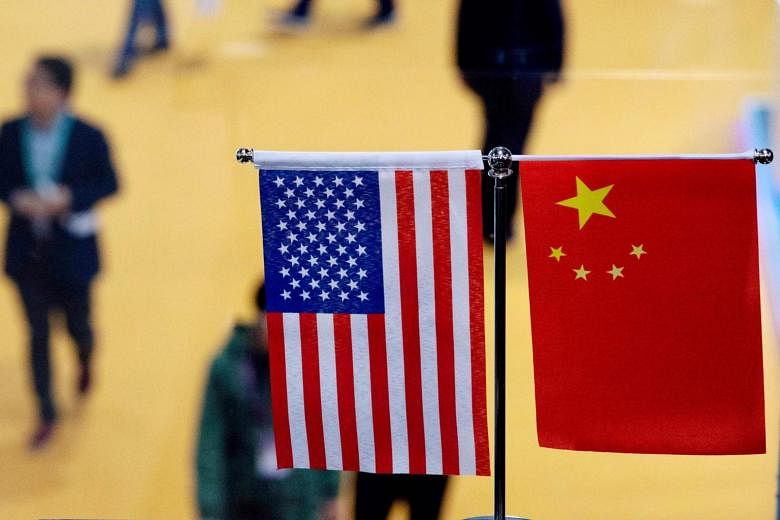China's central bank has flatly rejected the decision by the United States to label it a currency manipulator and warned that the move would "prevent a global economic and trade recovery".
The People's Bank of China (PBOC) also said that Washington's latest salvo, which escalates tensions between the two countries, would "severely damage international financial order and cause chaos in the financial markets".
The Chinese response came after the US Treasury Department said on Monday that it had determined for the first time since 1994 that China was manipulating its currency. The Dow crashed 2.9 per cent, or 767 points, as tensions mounted.
The "currency manipulator" label opened the door to even higher tariffs on Chinese products after the yuan had slipped past seven to the US dollar on Monday, its lowest in a decade.
"While the US has continuously escalated the trade dispute since 2018, China has always insisted on not engaging in competitive devaluation," PBOC said yesterday. "China has not and will not use its exchange rate as a tool to deal with trade disputes."
The statement echoed PBOC governor Yi Gang's comments on Monday that China has not weaponised the yuan. But in a barely veiled warning, PBOC added: "China advised the United States to rein in its horse before the precipice, and be aware of its errors, and turn back from the wrong path."
Yesterday, the yuan pared back some of its losses after the PBOC set a stronger-than-expected daily rate, which brought some relief to global markets. Most Asian indices still saw red: The Straits Times Index fell 0.75 per cent while Hong Kong lost 0.67 per cent.
Economists said fears of an imminent currency war that could touch off a wave of deflation across the world are overblown, although Beijing was likely sending a message to the US that it was prepared to weather a prolonged trade war.
The yuan's slump was likely the direct result of news that China had halted new US farm imports, widely seen as retaliation against President Donald Trump's threat last week of tariffs on another US$300 billion (S$414 billion) worth of Chinese goods, said ING Greater China economist Iris Pang. "The intention is also to make it impossible for Trump to continue saying he's the stock market man," she told The Straits Times.
Mr Trump has frequently tweeted about the US stock market's strong performance under his leadership, but the S&P 500 and Nasdaq have taken a beating in recent days, recording their worst weekly losses this year last Friday.
While the yuan's devaluation is likely to be limited given that the PBOC has taken steps in the past year to keep the currency up, UBS chief China economist Wang Tao said the impact of more tariffs and the currency manipulator designation is that countries should brace themselves for a drawn-out trade war.
"The latest US move will likely harden China's position in trade negotiations (as it) could be seen as further evidence that the US administration may not really want to reach a trade deal soon, reducing China's incentive to make additional concessions," she told financial media group Caixin.
Mr Tommy Xie, OCBC Bank's head of Greater China Research, noted that the currency manipulator labelling opened the door to stiffer US tariffs on Chinese imports down the line.
"We cannot rule out the risk that the Trump administration may increase the tariff further on Chinese imports to 40 per cent," he said.
Amid the rising tensions, China's Global Times pointed the finger squarely at the US. "China doesn't want to wage a currency war with the US, (but) this doesn't mean Beijing has an obligation to eliminate the side effects of US punitive tariffs by intervening in the market to defend the yuan," it said. "If depreciation caused by Trump's punitive tariffs ultimately hits US exports, don't blame China."


